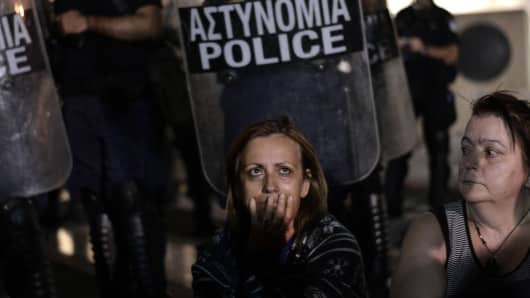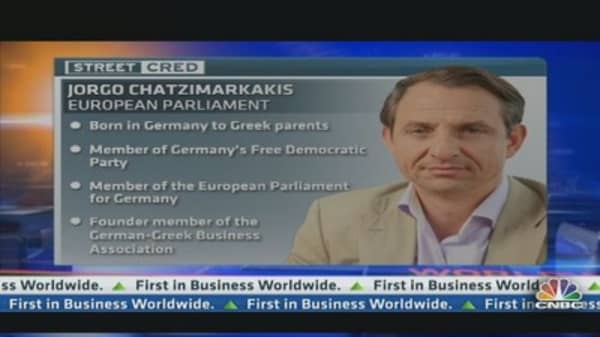Germany offered Greece further aid to establish a growth fund on Thursday, but a German member of the European Parliament (MEP) told CNBC the amount was too small, and came two years too late.
During a visit on Thursday, Germany's finance minister, Wolfgang Schaeuble proposed giving Greece 100 million euros ($131 million). However, Jorgo Chatzimarkakis, an MEP with Germany's Free Democratic Party, said that the offer was a "good sign", rather than a real help to the dismal Greek economy.
"This is urgently needed money, but 100 million euros is much too low as a spur for the Greek economy," said Chatzimarkakis, who is German-born but of Greek descent.
"It's a good sign but it's just a sign, it doesn't help the real economy. During the crisis, Greece has lost one million jobs, according to the OECD [Organisation for Economic Co-operation and Development], whereas Germany has won some 500,000 jobs…they need to stop this downwards spiral, and 100 million for a fund that doesn't exist is not the right answer."
(Read More: EuroZone Grants Multibillion Euro Lifeline for Greece)
Greece's economy shrank 5.3 percent year-on-year in the first quarter of 2013, after contracting 5.7 percent in the previous quarter. Meanwhile, unemployment rose to 26.8 percent in March 2013, according to Eurostat. One in two Greek young people are unemployed.
Chatzimarkakis added that Germany's offer also came too late to help Greece, and would take still longer to enter the real economy. "It wouldn't make any difference for the moment, because the fund does not exist," he said.
"We are talking about a fund which should have been ready for two years now. Greece is the only European country without such a development fund and it will be ready in December, so the 100 million euros that Schaeuble is bring along will have to wait a while until it enters the real economy."





